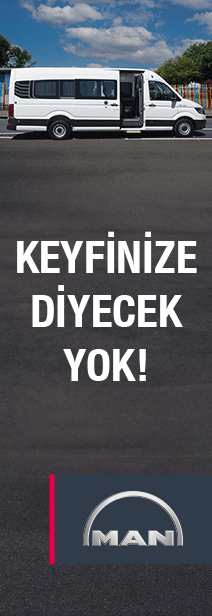MERCEDES-BENZ UNVEILS THE NEW CITAN VAN, WHILE THE eCITAN WİLL BE LAUNCHED IN 2022

Mercedes-Benz aims at being able to provide an electric alternative in all van categories, following the 2018 market launch of the eVito and the eSprinter in 2019. In the meantime, the latest version of the ‘traditional’ van will be available from September 13, 2021.
Mercedes-Benz has recently launched the new version of the Citan van. The German manufacturer also shared some news about the eCitan, the electric version of the iconic van, which will be officially introduced in the second half of next year.
Let’s start from the long-awaited electric vehicle, the eCitan, which is expected to have a range around 285 kilometres, in accordance with WLTP. According to Mercedes, at rapid charging stations the battery is expected to take 40 minutes to charge from 10 to 80 percent. One big advantage is that customers do not need to make concessions when it comes to the dimensions of the load compartment and the available payload in comparison to conventional models. Let’s remind that back in July, Mercedes announced its plans to go all-electric by 2030 in all its product ranges, including commercial vehicles.
Mercedes-Benz eCitan: Some Technical Insights
More into details, the electric motor available for the several Mercedes-Benz eCitan body variants will deliver a peak performance of 75 kW (102 hp). Maximum torque is 245 Nm and, due to the way in which the vehicle works, it is available as soon as you pull away, thereby enabling especially powerful acceleration from a standstill. The lithium-ion battery is positioned in the underbody ahead of the rear axle, where it is also protected against crashes. It offers a usable capacity of 44 kWh. The eight battery modules use pouch cells.
An externally excited synchronous motor drives the front wheels of the Mercedes-Benz eCitan. The motor is said to be synchronous because the rotor turns at the frequency of the stator’s magnetic field. The frequency is adapted to the driver’s speed request using the water-cooled frequency converters of the power electronics on-board the eCitan.
More Than One Charging Combination
At work, at home or at public charging stations, the Mercedes-Benz eCitan’s on-board charger allows it to be conveniently charged with 11 kW or optionally 22 kW alternating current (AC). The time required for full charging depends on the available infrastructure and the country-specific vehicle equipment.
And things get even faster at rapid charging stations with direct current (DC). Depending on the state of charge and the temperature of the high-voltage battery, the eCitan can be charged at corresponding charging stations with a maximum output of up to 75 kW. It is then expected to take around 40 minutes to charge the battery from 10 to 80 percent1. To enable both AC and DC charging, a CCS combination connector (Combined Charging System) can be optionally ordered for the eCitan. This is installed at the front of the vehicle underneath the Mercedes star.
Mercedes-Benz aims at being able to provide an electric alternative in all van categories, following the 2018 market launch of the eVito and the eSprinter in 2019.
The ‘Traditional’ Citan: Sensual Purity
The newly-introduced version of the Mercedes-Benz Citan van will be available starting from September in two possible versions, both as a Panel Van and a Tourer. Wide-opening sliding doors on the left and right sides of the vehicle, as well as a low loading sill optionally enable comfortable access to the interior and easy loading of the vehicle. Inside, passengers will enjoy the comfortable seats of the Citan Tourer. In addition to its high functionality and variability, the vehicle provides comprehensive safety equipment and a high level of driving comfort.
The design of the new Mercedes-Benz Citan is distinguished by balanced proportions and a sensual surface design. Muscular shoulders and striking wheel wells underline the vehicle’s power and emotive appeal – unusual styling elements for a small van. «At first glance, the new Citan is clearly discernible as a member of the Mercedes-Benz family. The clear shapes with reduced lines and powerful surfaces impart our philosophy of sensual purity», explained Gorden Wagener, Chief Design Officer at the Daimler Group.
The Diesel And Petrol Versions
At market launch, the engine range of the new Citan will be formed by three diesel and two petrol models. Shared strengths of all these are great driveability even in the low rev range and economical consumption values. For even faster acceleration, for example when overtaking, the 85‑kW version of the diesel engine available for the Panel Van features an overpower/overtorque function. Up to 89 kW of power and 295 Nm of torque can be called up briefly. The power units fulfil the Euro 6d emissions norms. All engines are combined with an ECO start/stop function. Alongside the six-speed manual transmission, the most powerful diesel and petrol models are also available with a seven-speed dual-clutch transmission (DCT).
Finally, the Citan combines compact exterior dimensions (the length is 4498 mm) with a generous amount of space. Thanks to a number of different versions and practical equipment details, it offers plenty of different usage possibilities and convenient loading. Even in the short wheelbase variant (2716 mm), the Citan offers much more space compared with the predecessor model – on the Panel Van, for example, the load compartment length is 3.05 metres (with the flexible partition wall).











